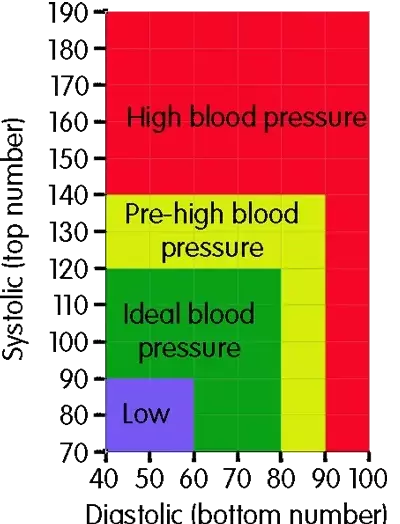Blood Pressure
If your blood pressure is too high, it puts extra strain on your blood vessels, heart and other organs. High blood pressure can increase your risk of a number of serious conditions, such as heart disease, heart attacks, strokes, heart failure, peripheral arterial disease, and kidney disease.
High blood pressure is known as the silent killer as there are rarely any symptoms. More than 14 million adults in the UK have high blood pressure and an estimated 5 million people in the UK have high blood pressure and don’t know about it. Unless you’ve had your blood pressure tested the first time you know about it might be when you have a heart attack or stroke.
Causes of High Blood Pressure
You can use this to find out what your blood pressure test results mean.
If your blood pressure is too high, it puts extra strain on your blood vessels, heart and other organs. High blood pressure can increase your risk of a number of serious conditions, such as heart disease, heart attacks, strokes, heart failure, peripheral arterial disease, and kidney disease.
High blood pressure is known as the silent killer as there are rarely any symptoms. More than 14 million adults in the UK have high blood pressure and an estimated 5 million people in the UK have high blood pressure and don’t know about it. Unless you’ve had your blood pressure tested the first time you know about it might be when you have a heart attack or stroke.
Causes of High Blood Pressure
- Age. The risk of high blood pressure increases as you get older.
- Being inactive.
- A family history of high blood pressure.
- Being obese.
- Regularly drinking too much alcohol.
- Too much salt in your diet.
- Long-term sleep deprivation.
- Some drugs can increase blood pressure.
- Smoking.
- It can be caused by conditions such as diabetes and kidney disease.
- Stress.
- Reduce your salt intake if it’s high,
- Being active.
- Eat a healthy diet. Less sugar, more fruit, veg, and omega 3.
- Limit alcohol.
- Don’t smoke.
- Lose weight if you need to.
- Limit caffeine.
- Get 7-8 hours of sleep.
- Reduce stress.
You can use this to find out what your blood pressure test results mean.
- High blood pressure is considered to be 140/90mmHg or higher (or an average of 135/85mmHg at home)
- Ideal blood pressure is considered to be between 90/60mmHg and 120/80mmHg
- Low blood pressure is considered to be 90/60mmHg or lower.
You should get your blood pressure tested regularly so you can make changes if needed. Simple diet, exercise and lifestyle changes can keep, or help lower your blood pressure so it's a healthy level. You'll find you can lower your blood pressure fairly quickly.
